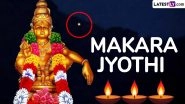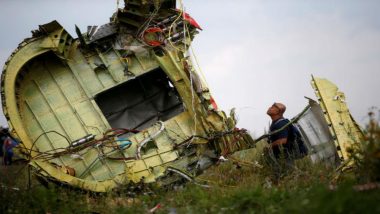Copenhagen, October 4: Dutch security services expelled four Russian intelligence officers in April over a cyber plot targeting the global chemical-weapons watchdog and an international probe into the downing of a passenger jet over Ukraine in 2014, officials here said on Thursday.
The Dutch government accused Russia's military intelligence agency, the GRU, of targeting the Organisation for the Prohibition of Chemical Weapons (OPCW) in The Hague.
The OPCW has been probing the chemical attack on Russian ex-spy Sergei Skripal and his daughter in the UK. The allegations were part of an organised push-back against alleged Russian cyber attacks around the world, the BBC reported.
Hours earlier on Thursday, the UK, backed by Australia and New Zealand, blamed the GRU for carrying out a worldwide campaign of "malicious" cyber attacks on firms in Russia and Ukraine, US Democratic National Committee in 2016 and a small TV network in the UK. MH17 Flight Mystery: Investigators Blame Russia for Shooting Down of Malaysian Airlines Aeroplane.
The Netherlands summoned the Russian Ambassador for an explanation, reports said. Russia, on the other hand, called the accusations a "diabolical cocktail" of allegations. Dutch officials outlined the alleged Russian operation at a joint Dutch-UK government news conference in The Hague.
Describing it "very worrying", Dutch Defence Minister Ank Bijleveld-Schouten said the four intelligence officers were expelled on April 13, the same day the plot was detected.
They had diplomatic passports and included two IT experts and two support agents, officials said. The head of Dutch counter-intelligence, Maj. Gen. Onno Eichelsheim, named them as hackers Alexei Morenetz and Yevgeny Serebriakov, and support agents Oleg Sotnikov and Alexei Minin.
According to Bijleveld-Schouten, the intelligence officers left belongings behind that also enabled the Dutch to discover that one of the agents' laptops had made connections to Brazil, Switzerland and Malaysia, trying to interfere with the investigation into the downing of Malaysia Airlines Flight 17 in eastern Ukraine in 2014.
Addressing reporters, the Dutch counter-intelligence head gave a detailed description of what the four men were doing when their operation was disrupted.
He said that the agents arrived in the Netherlands on April 10, rented a car the following day and parked it in a hotel parking lot as close as possible to the OPCW headquarters.
They were scouting to hack into the OPCW's wifi network and the equipment in their car boot was pointed at the OPCW and was being used to intercept login details, he said.
On being intercepted, the men tried to destroy one of the mobile phones they were carrying. Britain has blamed the GRU for the poisoning of Skripal and his daughter Yulia with a military-grade nerve agent in the English city of Salisbury on March 4.
UK investigators had also formally linked the attack on the Skripals to the June 30 poisoning of Dawn Sturgess and Charlie Rowley, a couple living in Amesbury, near Salisbury. Sturgess died on July 8 after applying a substance to her wrists from a perfume bottle found by Rowley.
In September, British authorities released the names of two men -- Alexander Petrov and Ruslan Boshirov -- as suspects in Skirpals' poisoning. The UK called them GRU agents. However, Russia described the two suspects as civilians and said it found no evidence of their criminal activities.
(The above story first appeared on LatestLY on Oct 04, 2018 07:10 PM IST. For more news and updates on politics, world, sports, entertainment and lifestyle, log on to our website latestly.com).













 Quickly
Quickly


